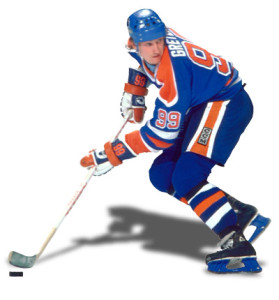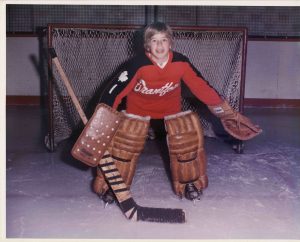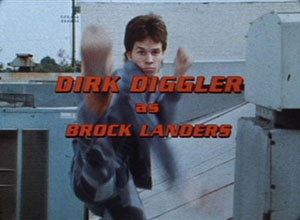Food Safety Talk, a bi-weekly podcast for food safety nerds, by food safety nerds. The podcast is hosted by Ben Chapman and barfblog contributor Don Schaffner, Extension Specialist in Food Science and Professor at Rutgers University. Every two weeks or so, Ben and Don get together virtually and talk for about an hour. They talk about what’s on their minds or in the news regarding food safety, and popular culture. They strive to be relevant, funny and informative — sometimes they succeed. You can download the audio recordings right from the website, or subscribe using iTunes.
Don and Ben have Skype issues but this time it was actually Don. Don announced that there will be help for people like Ben who aren’t so good at managing their time and attention at IAFP 2014, with Merlin Mann presenting on Wednesday in a special lunch session. The guys estimate about 0.1% of IAFP annual meeting attendees will be excited to see him – including Ben and Don, and probably Batz. Ben mentions his excitement that Professor Dr. Donald Schaffner, PhD was name checked on Back to Work Episode 173.
The first mention of The Wire comes at 12 minutes in when the guys give a shout out to Baltimore resident Manan Sharma who says that this is his favorite part of the show.
In follow-up from Episode 61, friend of the show MDD says that there are not rats in Alberta Ben and Don remark while there may not be any snakes in New Zealand and Ireland (although Ben thinks that Don is thinking of potatoes) there are rats in small pockets in Alberta. While Alberta has had a rat eradication program since the 1950s, a colony of Norwegian rats, of Roanoke Island proportion, was found in Medicine Hat (that’s in Canada) in 2012 and 2014. Ben tells Don that he wears big pockets to avoid rats, and that and on a pilgrimage to Edmonton to see a statue of The Great One, his pockets were not checked.
The guys then talk about a question from IAFP’s Dina (not Dinah). Dina asked the guys to discuss their thoughts on a recent JFP paper about non-intact steak cooking using temperature, flipping/turning and different cooking methods. The practical, take-home message (as dictated using Dragon Dictate) was that that flipping and covering with a lid (which allows cooking to occur both through conduction and convection heat) and using a thermometer for all cuts of meat helps reduce risk.
Ben talked a bit about some future work that his group is doing looking at mechanically tenderized beef messaging, perception and behavior – including cubed steak. Cube steak is sometimes made by slapping two pieces of meat together and running through a cuber – although not according to Wikipedia, which is never wrong. The discussion moved to steak eating preferences as detailed by FiveThirtyEight Nate Silver’s cadre of numbers nerds who dissect a lot of pop culture and sports questions.
The guys then both talked about message variability projects they have going on. Ben’s group is looking at cook book recipes (and how the messages and instructions in the culinary world often are not evidence-based). And Don’s group is looking at messaging on handwashing signs, something that his second favorite graduate student Dane, is undertaking.
In outbreak flashback the guys talked about 1854’s Broad St. Pump cholera outbreak. Using a map and analyzing cases of human disease, John Snow, largely recognized as one of the founders of epidemiology, created a blueprint for the next generation of disease hunters. Removing the handle on the pump is commonly thought to have ended the outbreak except that modern epi-curve analysis suggests that the outbreak was already on the decline. Ben’s favorite part was what one of his undergraduate professors, Anthony Clarke talked about in class 15 years ago: the monks in a local monastery did not get sick because they didn’t drink the water, just home brewed beer.
The guys then ended the show talking about an outbreak linked to food service hamburgers made by Wolverine Packing. Or is that Wolverine Packing with it’s adamantium slicers and grinders? In either case, It’s unclear whether illnesses are linked to undercooked burgers or cross contamination – although anecdotally undercooked burgers have been reported. One of Ben’s graduate student’s Ellen Thomas has been working on a project related directly to this type of product, where secret shoppers have been speaking with servers at burger-serving family style restaurants throughout the U.S. The results of the project will be shared at IAFP in Indianapolis.
In after dark the guys chuckle and guffaw about Ben’s Beatles references, time and attention management, and Tony Robbins who Ben thinks is in prison. But he’s not. He was thinking of James Arthur Ray. Don mentions that the author Kurt Vonnegut (who explains the universal shapes of storytelling) has a memorial library in Indianapolis.
 In 1974, as a pee wee (ice) hockey goaltender, I boarded a train, with my parents, from Brantford, Ontario to Quebec City.
In 1974, as a pee wee (ice) hockey goaltender, I boarded a train, with my parents, from Brantford, Ontario to Quebec City. I have tried to bring these humble homilies to my years of coaching, teaching, and whatever else.
I have tried to bring these humble homilies to my years of coaching, teaching, and whatever else.

 thousands of fans expecting Gretzky-magic from the Brantford boys.
thousands of fans expecting Gretzky-magic from the Brantford boys.